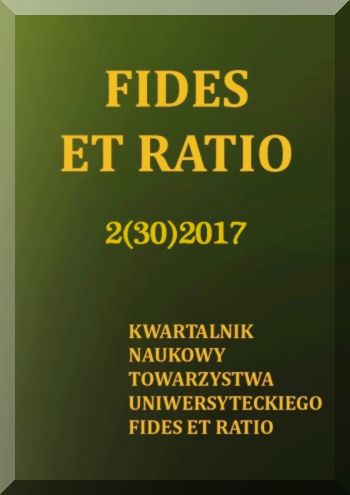Abstract
In the article results of two studies (n=96 and n=50) are presented, which was aim to explore a perceived impact of being raised in alcoholic family on psychosocial functioning of adults. Both studies involved people aged between 20 and 40. The results of Study 1 show that 1) Most of participants don’t view themselves as victims of parental alcoholism; 2) Basic hope understood as a fundamental belief in order and positivity of the world is negatively associated with perceived negatives outcomes of parental drinking; 3) Women report more than men self – worth related negative outcomes of parental drinking. Study 2 demonstrates that majority of participants find at least some benefits of being raised in alcoholic family including constructive changes in self-esteem and motivation. Self – related benefits are far more frequently reported than changes in relationships with others.
References
Chodkiewicz, J., Wilska, A. (2008), Stan zdrowia, wsparcie społeczne i zadowolenie z życia Dorosłych Dzieci Alkoholików korzystających z pomocy terapeutycznej. Alkoholizm i Narkomania, 21,1, 135-152.
Domenico, D., Windle, M. (1993). Intrapersonal and interpersonal functioning among middle-aged female adult children of alcoholics. Journal of Consulting and Clinical Psychology, 61(4), 659–66.
Gavriel-Fried, B., Teichman, M. (2007). Ego Identity of Adolescent Children of Alcoholics. Journal of Drug Education, 37(1), 83–95. http://doi.org/10.2190/7275-8102-P2NH-KJ15
Grzegorzewska, I., Cierpiałkowska, L. (2015). Pozytywna i negatywna adaptacja dzieci i młodzieży rodziców uzależnionych od alkoholu. Alcoholism and Drug Addiction, 28(4), 221–233. http://doi.org/10.1016/j.alkona.2015.11.004
Hall, C. W., Webster, R. E. (2007). Multiple stressors and adjustment among adult children of alcoholics. Addiction Research and Theory, 15(4), 425–434. http://doi.org/10.1080/16066350701261865
Harter, S. L. (2000). Psychosocial adjustment of adult children of alcoholics: A review of the recent empirical literature. Clinical Psychology Review, 20(3), 311–337. http://doi.org/10.1016/S0272-7358(98)00084-1
Hinz, L. D. (1990). College student adult children of alcoholics: psychological resilience or emotional distance? Journal of Substance Abuse, 2(4), 449–57. Pobrano z http://www.ncbi.nlm.nih.gov/pubmed/2136127
Hussong, A. M., Flora, D. B., Curran, P. J., Chassin, L. A., Zucker, R. A. (2008). Defining risk heterogeneity for internalizing symptoms among children of alcoholic parents. Development and Psychopathology, 20(1), 165–193. http://doi.org/10.1017/S0954579408000084
Jennison, K. M., Johnson, K. A. (2001). Parental alcoholism as a risk factor for DSM-IV-defined alcohol abuse and dependence in American women: the protective benefits of dyadic cohesion in marital communication. The American journal of drug and alcohol abuse, 27(2), 349–74. Pobrano z http://www.ncbi.nlm.nih.gov/pubmed/11417944
King, K. M., Chassin, L. (2007). A prospective study of the effects of age of initiation of alcohol and drug use on young adult substance dependence. Journal of studies on alcohol and drugs, 68(2), 256–65.
Lease, S. H. (2002). A Model of Depression in Adult Children of Alcoholics and Nonalcoholics. Journal of Counseling and Development, 80(4), 441–451. http://doi.org/10.1002/j.1556-6678.2002.tb00211.x
Obot, I. S., Anthony, J. C. (2004). Mental Health Problems in Adolescent Children of Alcohol Dependent Parents: Epidemiologic Research with a Nationally Representative Sample. Journal of Child and Adolescent Substance Abuse, 13(4), 83–96. http://doi.org/10.1300/J029v13n04_06
Pearson, M. R., D’Lima, G. M., Kelley, M. L. (2011). Self-regulation as a buffer of the relationship between parental alcohol misuse and alcohol-related outcomes in first-year college students. Addictive Behaviors, 36(12), 1309–1312. http://doi.org/10.1016/j.addbeh.2011.07.009
Preuss, U. W., Schuckit, M. A., Smith, T. L., Barnow, S., Danko, G. P. (2002). Mood and anxiety symptoms among 140 children from alcoholic and control families. Drug and Acohol Dependence, 67(3), 235–42. Pobrano z http://www.ncbi.nlm.nih.gov/pubmed/12127194
Rafferty, P., Hartley, P. (2006). Shame about the children: A legacy of distress for adults who have grown up with parental problem drinking and family disharmony? Journal of Substance Use, 11(2), 115–127. http://doi.org/10.1080/14659890500237440
Ransom S., Sheldon K.M., i Jacobsen P.B. (2008). Actual change and inaccurate recall contribute to posttraumatic growth following radiotherapy. Journal of Consulting and Clinical Psychology, 76 (5), s. 811–819.
Ryś, M. (2007), Rodzinne uwarunkowania psychospołeczne funkcjonowania Dorosłych Dzieci Alkoholików. Warszawa: Wydawnictwo Naukowe PWN.
Schuckit, M. A., Smith, T. L., Radziminski, S., Heyneman, E. K. (2000). Behavioral Symptoms and Psychiatric Diagnoses Among 162 Children in Nonalcoholic or Alcoholic Families. American Journal of Psychiatry, 157(11), 1881–1883. http://doi.org/10.1176/appi.ajp.157.11.1881
Sher, K. J. (1997). Psychological characteristics of children of alcoholics. Alcohol Health and Research World, 21(3), 247–254.
Taylor, S. E., Wood, J. V., Lichtman, R. R. (1983). It could be worse: Selective evaluation as a response to victimization. Journal of Social Issues, 39, 19–40.
Taylor, S. E., Brown, J. D. (1988). Illusion and well-being: a social psychological perspective on mental health. Psychological bulletin, 103(2), 193–210. Pobrano z http://www.ncbi.nlm.nih.gov/pubmed/3283814
Tedeschi, R. G., Calhoun, L. G. (2004). Posttraumatic Growth: Conceptual Foundations and Empirical Evidence. Psychological Inquiry, 15(1), 1–18. http://doi.org/10.1207/s15327965pli1501_01
Tedeschi R. G., Calhoun, L. G. (2007). Podejście kliniczne do wzrostu po doświadczeniach traumatycznych. W: P.A. Linley, S. Joseph (red.), Psychologia pozytywna w praktyce (s. 230-248). Warszawa: Wydawnictwo Naukowe PWN.
Tennen H., Affleck G. (2002), Benefit finding and benefit-reminding, W: C.R. Snyder, S.J. Lopez (red.), Handbook of Positive Psychology (s. 584–597). New York: Oxford University Press.
Tragesser, S. L., Trull, T. J., Sher, K. J., Park, A. (2008). Drinking motives as mediators in the relation between personality disorder symptoms and alcohol use disorder. Journal of Personality Disorders, 22(5), 525–37. http://doi.org/10.1521/pedi.2008.22.5.525
Trzebiński, J., Zięba, M. (2004). Basic hope as a world-view: an outline of concept. Polish Psychological Bulletin, 35(3), 173–182.
Werner, E. E., Johnson, J. L. (2004). The role of caring adults in the lives of children of alcoholics. Substance Use and Misuse, 39(5), 699–720. Pobrano z http://www.ncbi.nlm.nih.gov/pubmed/15202805
Werner, E. E. (2005). What Can We Learn about Resilience from Large-Scale Longitudinal Studies? W: S. Goldstein & R. Brooks (red.), Handbook of Resilience in Children (s. 91–106). Boston, MA: Springer US. http://doi.org/10.1007/0-306-48572-9_7
Wilson, T. D., Gilbert, D. T. (2008). Explaining Away: A Model of Affective Adaptation. Perspectives on Psychological Science, 3(5), 370–386. http://doi.org/10.1111/j.1745-6924.2008.00085.x
Zięba, M. (2010). Właściwości psychometryczne kwestionariusza BHI-R. Wstępny raport z badań walidacyjnych. Pobrane z: https://www.researchgate.net/publication/281116316_Wlasciwosci_psychometryczne_kwestionariusza_BHI-R_Wstepny_raport_z_badan_walidacyjnych (1 kwietnia 2017 roku).
Zięba, M., Czarnecka-van Luijken J., Wawrzyniak, M. (2010). Nadzieja podstawowa i wzrost postraumatyczny, Studia Psychologiczne, t. 49, z. 1, 109–121.
